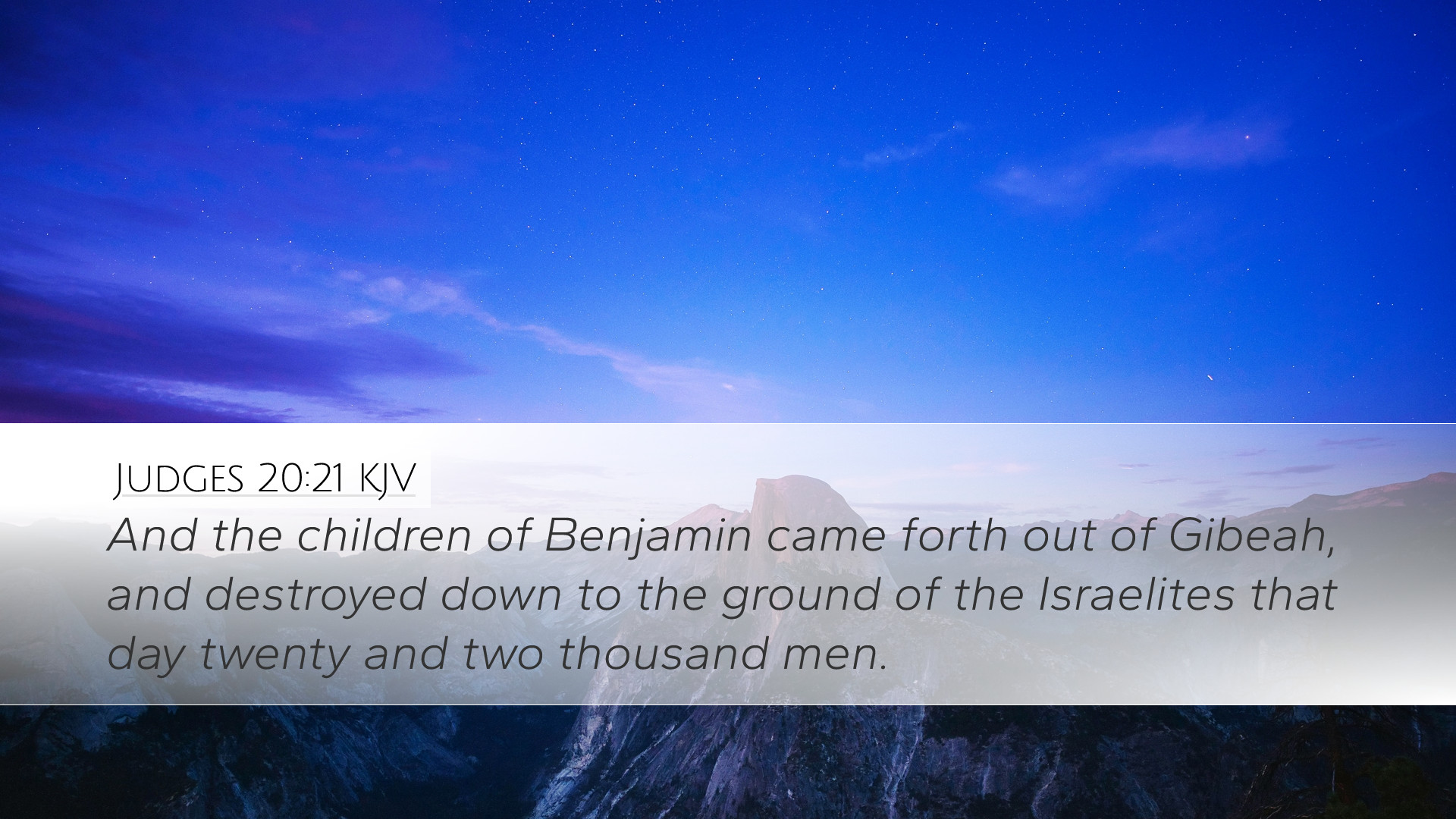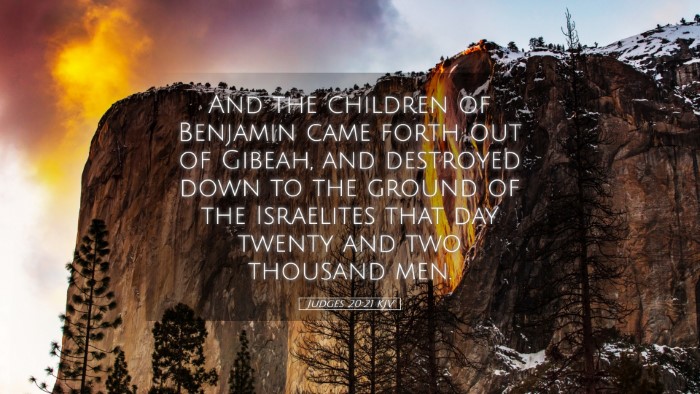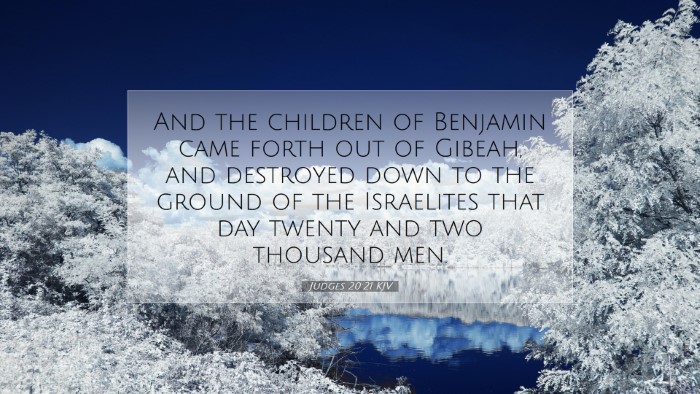Commentary on Judges 20:21
Judges 20:21 provides a significant snapshot of the events during a tumultuous period in Israel's history, as it captures the essence of the conflict between the tribe of Benjamin and the other tribes of Israel. This commentary synthesizes insights from notable public domain sources such as Matthew Henry, Albert Barnes, and Adam Clarke, aiming to elucidate the deeper meanings behind the text for pastors, students, theologians, and Bible scholars.
Text of Judges 20:21
"And the children of Benjamin came forth out of Gibeah and destroyed down to the ground of the Israelites that day twenty-two thousand men."
The Context of the Passage
This verse occurs within a narrative that is laden with judicial and moral implications. Previous chapters detail the heinous crime that incited the conflict, leading to a call for justice from the tribes of Israel. The context outlines the lawlessness and moral decay prevalent in Israel during this period, where "everyone did what was right in his own eyes" (Judges 21:25).
Matthew Henry's Perspective: Henry stresses the gravity of the situation, noting that the battle was not merely a conflict of arms but a reflection of Israel's moral failings. He highlights that the loss suffered by Israel was a divine judgment against their prior decisions and their treatment of the Levite's concubine.
Analysis of the Verse
Judges 20:21 presents a moment of intense loss for the Israelites, illustrating the severity of the civil strife within the nation. The number twenty-two thousand signifies a devastating blow and poses questions regarding the leadership and rationale behind the military engagements of the tribes.
Military and Strategic Insights
Albert Barnes' Commentary: Barnes details the tactical aspects of the battle. He notes that the Israelites, well-prepared for battle, encountered unexpected resistance from Benjamin, demonstrating their underestimation of the enemy’s resolve. He argues that in the face of such dire consequences, it reveals a lack of cohesive leadership among the tribes.
Many of the soldiers engaged in the battle did so out of a sense of communal justice rather than strategic warfare, which proved detrimental. Barnes elaborates on how the fragmentation of Israel during this episode foreshadowed the impending calamity that would come over the nation if unity was not restored.
Theological Implications
Adam Clarke's Insights: Clarke emphasizes the theological aspect of the verse, arguing that the defeat is evidence of divine retribution against Israel for their lapses in morality and justice. He alludes to the idea that spiritual disarray often manifests in physical or communal conflicts.
Furthermore, Clarke points out that the number of casualties represents not merely a statistic but a spiritual tragedy. Each life lost illustrates the deeper consequences of sin and disobedience to God's commands, which called for justice to be enacted as per the Torah.
Broader Themes in Judges 20
The broader narrative surrounding Judges 20 introduces key themes such as justice, communal responsibility, and the quest for divine guidance. The Israelites' response to the atrocities of Gibeah illustrates their attempt to uphold justice, though it devolves into vengeance and devastation.
- Justice vs. Vengeance: The Israelites' desire for justice spirals into revenge, showcasing the fine line between righteous indignation and destructive retaliation.
- The Role of Leadership: The lack of central governance in Israel leads to tragedy, underscoring the need for wise and just leaders who seek guidance from God.
- Faith and Divine Retribution: The passage reflects the belief in divine sovereignty over human affairs, where victories and defeats carry spiritual significance.
Lessons for Contemporary Readers
For pastors, students, and theologians, Judges 20:21 serves as a poignant reminder of the consequences of collective sin and the importance of maintaining moral standards. The passage illustrates the difficulties of navigating justice amidst a broken community and the dangers of division. Lessons on reliance on God's wisdom, communal accountability, and the pursuit of restorative justice are timely and relevant.
Conclusion
In conclusion, Judges 20:21 encapsulates a significant moment in Israel’s history, rife with implications for theology, ethics, and communal life. Drawing insights from the writings of Matthew Henry, Albert Barnes, and Adam Clarke enriches our understanding of this verse, as it calls for reflection on justice, leadership, and the ever-present need for divine guidance in our actions.


